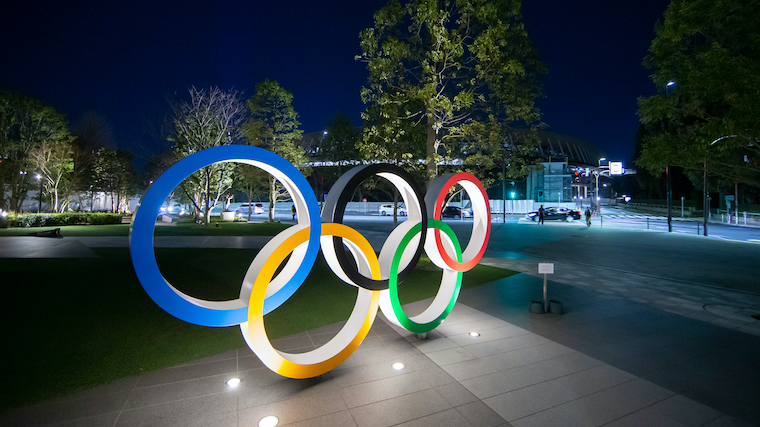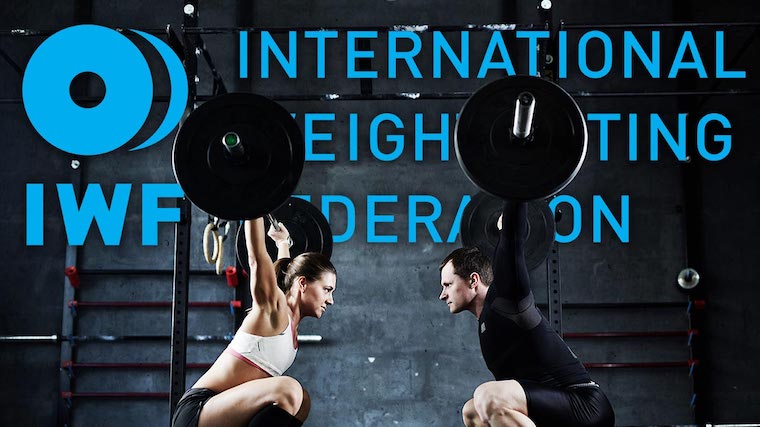The International Weightlifting Federation (IWF) Executive Board held a vote in an emergency virtual meeting called by Nicu Vlad of Romania where they decided to remove Ursula Papandrea of the United States as Interim President. She was replaced by Intarat Yodbangtoey of Thailand on Oct. 13, 2020. Papandrea was not in attendance at that meeting.
According to insidethegames, the emergency meeting emerged from a “rift at the top of the sports governing body” following a statement from International Olympic Committee (IOC) President Thomas Bach at a virtual press conference held on Oct. 7, 2020. Bach voiced concerns regarding the progress within IWF’s governance that could lead to the removal of weightlifting from the 2024 Paris Olympic Games altogether.

Back in June, the McLaren report exposed the financial corruption scandal and doping coverup by former IWF President Tamas Aján. Allegations were made against Aján in January by the German documentary “Secret Doping — Lord of the Lifters”. Then IWF Vice President Papandrea assumed the office of Acting President of the IWF in January following the documentary’s release.
On page 87 of the McLaren report, Intarat was deemed a “vote broker” under Aján — someone who would distribute money to federation members as bribes to vote a particular way. Thailand’s weightlifting federation is banned from the Tokyo Olympic Games as a result of repeat doping violations.
According to multiple reports, some have already questioned the legitimacy of the emergency meeting, as well as its motivations. Also, both the International Olympic Committee and USA Weightlifting have condemned the IWF’s decision.
The leadership division exists between Executive Board members representing nations that have been banned from weightlifting competition at the 2020 Tokyo Olympic Games or had their weightlifting quotas reduced, versus Papandrea and the IWF Athletes Commission.
View this post on Instagram
[Related: Phil Andrews: International Weightlifting and the McLaren Report (Podcast)]
IWF’s Initial Response
On October 9, 2020 — two days after the IOC’s virtual press conference and four days before Papandrea’s ousting — the IWF released a statement acknowledging Bach’s concerns. They “pledged further progress in both anti-doping work and governance reform,” and expressed their commitment to improving in two key areas: governance and anti-doping.
Governance
With regard to the need for athlete representation in governance, the IWF’s statement promoted the establishment of the IWF Athletes Commission on September 1, 2020, which is made up of 10 decorated weightlifters including Sarah Davies, Lu Xiaojun, and Hiromi Miyake. It was noted that the IWF Athletes Commission has been in attendance at IWF Board Meetings, but they do not have a vote.
Papandrea did concede, however, that “constitutional reform, progress on a new Reform and Governance Commission, and the inclusion of a replacement set of independents could certainly be quicker and more comprehensive.”
The constitutional reform Papandrea referred to is likely in regard to the IOC’s concern that the IWF has not yet accepted any independent advice to reform their constitution ahead of the potential IWF elections.
Anti-Doping
Papandrea noted that the week prior to the IOC’s Executive Board meeting, the Anti-Doping Commission was reestablished and comprised of members “recommended and vetted by the International Testing Agency (ITA).”
Additionally, the IWF signed an agreement with the Anti-Doping Division of the Court of Arbitration for Sport (CAS ADD) on April 22, 2020. This agreement states that the IWF would delegate adjudication of alleged anti-doping rule violations as well as any necessary sanctions as a result.
Olympic Qualification System
Further division among IWF leadership comes regarding potential changes to the Olympic qualifying system. Due to the likely lack of live competitions in the third and final qualifying period, Papandrea’s opposition favors a return to an older qualifying system where a single best performance for each qualifying period would count rather than the points system currently in place.
The issues surrounding such “adaptations” to the qualification system are that athletes have been competing under the the points based system for the past two years and could rearrange who ultimately qualifies for the Games — simply put, the change in system could change who qualifies for the Tokyo Olympics.

It’s worth noting any changes the IWF Executive Board proposes would need approval from the IOC. According to Papandrea, risking the reputation of the sport by altering the qualification system and anti-doping rules was a move she considered “beyond irresponsible.”
USA Weightlifting Responds
USA Weightlifting (USAW) condemned the decision of the IWF Executive Board to remove Papandrea. In USAW’s response, they state:
We are disgusted and outraged that a majority of the IWF Executive Board continues to block efforts to create real and substantive change in the areas of governance, anti-doping reform and Athlete representation.
They go on to call these actions “transparently corrupt” and reward and empower “nations who can only win by cheating.”
Phil Andrews, who is USA Weightlifting’s CEO, submitted his letter of resignation from his position as the IWF’s Interim Deputy Director General, and his last official day was Monday, October 12th.
Note: BarBend is the Official Media Partner of USA Weightlifting. The two organizations maintain editorial independence unless otherwise specified in special content.
Wrapping Up
Prior to her ousting at a virtual Executive Board meeting and the appointment of Intarat in her place, Papandrea stated in the IWF press release that she is “under no illusions about the likely impact of any failure to act promptly on the IOC’s latest call to action.”
BarBend has reached out to Papandrea for comment regarding the IWF Executive Board’s decision to remove her from her position as Interim President.
Feature Image via Shutterstock/Pressmaster